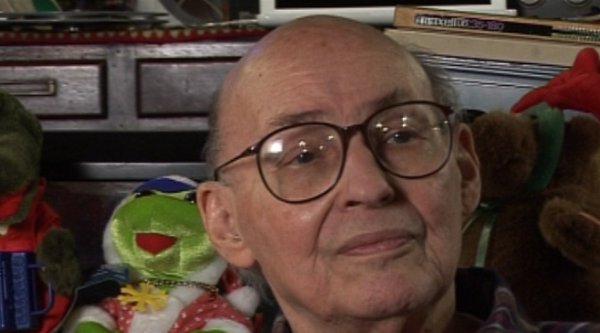NEXT STORY

Memories of post-war childhood: Mother and father
RELATED STORIES

NEXT STORY

Memories of post-war childhood: Mother and father
RELATED STORIES


|
Views | Duration | |
|---|---|---|---|
| 1. The amazing videophone from the '60s | 12 | 3300 | 01:41 |
| 2. Unreliable childhood memories | 1 | 1858 | 04:04 |
| 3. Fieldston School | 1419 | 01:35 | |
| 4. The next J Robert Oppenheimer? | 2182 | 00:52 | |
| 5. Feeling rather slow | 2 | 1888 | 04:06 |
| 6. Having intelligent friends | 2 | 2036 | 04:44 |
| 7. Memories of post-war childhood: Mother and father | 1289 | 03:03 | |
| 8. The significance of being Jewish as a child | 1643 | 01:01 | |
| 9. The direction of attraction between mathematicians and musicians | 1423 | 01:39 | |
| 10. Tinker Toys versus Lego | 2175 | 04:17 |

I mean, all this is about the question of whether I ever felt particularly intelligent, and once I got to Harvard, I had somehow selected a group of four or five friends who became close friends for many years, and they were terribly smart. But generally when I wandered around the University most of the students seemed pretty mediocre; and after a long time I realized that a lot of them were good at something else, like social organizations or… or other maybe intellectual but not technical subjects, and it was rather disappointing.
But I was very lucky, and I quickly found myself with some friends who were fantastically advanced. A young mathematician named Andrew Gleason who had come in first in a national mathematics competition three years in a row – that had never happened before – and he knew a vast amount of mathematics; and every time something came up he… we had lunch very frequently, and I’d ask him some question and he would tell me, that’s a whole field and here’s how it works and... I also ran into a couple of wonderful young psychologists, Joe Licklider and George Miller who were pioneers in cognitive psychology and… some biologists and… I just found myself in an atmosphere where my friends were young professors rather than colleagues and students. And it’s always been like that, except that when I became a professor, by some collection of miracles at MIT, I attracted a really quite large population of… of exceptional inventors and… as computer science was just being developed, the kind of young people who are often called hackers – which is a term that has two meanings – one is, hobbyists who are very good at exploring new concepts of computation before anyone else, and then there’s the sort of safecracker hacker type who’s somebody who tries to penetrate computer systems and break them and… unfortunately the same word was used for both communities. And the people in both communities were somewhat similar, because to… to unpack a complicated system and understand it and find its weakest parts and break them takes the same kind of skill it takes, at least in many cases, to invent such systems. So maybe it’s not an accident that the same word was used for both the constructive and destructive elements of that society.
Anyway, when I finished graduate school and… moved into the university as a teacher, it was sort of a continuous development, and still having very advanced older friends and having very advanced younger friends… so, it was heaven. It was just any… it was being in an environment where everything seemed possible, and if I had an idea, I could either try to do it myself, which I might be able to, or I’d mention it to one of these kids, and three days later a system would appear that today would take a couple of years if some commercial company tried to do it.
Marvin Minsky (1927-2016) was one of the pioneers of the field of Artificial Intelligence, founding the MIT AI lab in 1970. He also made many contributions to the fields of mathematics, cognitive psychology, robotics, optics and computational linguistics. Since the 1950s, he had been attempting to define and explain human cognition, the ideas of which can be found in his two books, The Emotion Machine and The Society of Mind. His many inventions include the first confocal scanning microscope, the first neural network simulator (SNARC) and the first LOGO 'turtle'.
Title: Having intelligent friends
Listeners: Christopher Sykes
Christopher Sykes is a London-based television producer and director who has made a number of documentary films for BBC TV, Channel 4 and PBS.
Tags: Harvard University, MIT, hacker, Andrew Gleason, Joseph Licklider, George Miller
Duration: 4 minutes, 45 seconds
Date story recorded: 29-31 Jan 2011
Date story went live: 09 May 2011